
Different forces at play behind major corporate transformations: changes in population and human resources, intensified global competition, ESG demands, among other factors.
The pace of change is not expected to abate anytime soon. To set their companies on the right course, change-oriented executives need to face challenging circumstances, both internally and externally, head on.
Bain & Company's “Forces of Change” video series, a series of interviews with executives based in Japan, offers insights on how executives have been catalysts for change at their own companies. Below are some excerpts from the a video conversation (in Japanese) between Ken Miyauchi, Chairman of SoftBank Corp., and Shintaro Okuno, Chairman of Bain & Company Japan.
About Bain & Company
Bain & Company is a global consultancy that helps the world’s most ambitious change makers define the future. Across 64 cities in 39 countries, Bain & Company works alongside its clients as one team with a shared ambition to achieve extraordinary results, outperform the competition, and redefine industries.
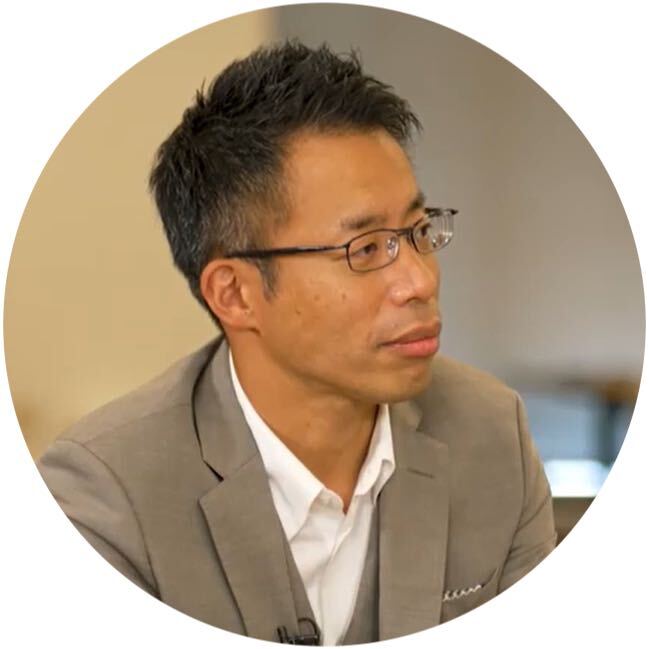
Shintaro Okuno
Partner, Japan Chairman
Bain & Company
Okuno is a partner based in Bain & Company's Tokyo office. He served as Tokyo office head from 2014 to 2021, and was appointed as Japan Chairman from 2022. He leads Bain’s Advanced Manufacturing & Services practice in Japan, and has about 20 years of management consulting experience, advising business leaders on their biggest opportunities and challenges. Prior to joining Bain & Company, he worked in the new business planning division of the Central Japan Railway Company.
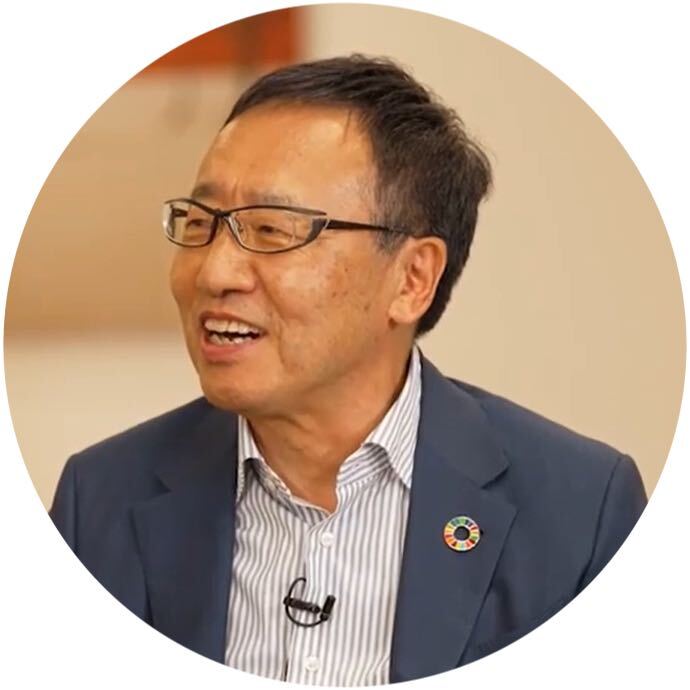
Ken Miyauchi
Representative Director & Chairman
SoftBank Corp.
Since joining SoftBank Corp. Japan (what is now SoftBank Group Corp.) in 1984, three years after its founding, Miyauchi has been instrumental to implementing SoftBank Group Corp. founder Masayoshi Son’s vision in many SoftBank businesses. He served as President & CEO of SoftBank Corp. from 2015 to 2021, and has since assumed the post of Chairman.
Evolution of technology also drives the evolution of business models
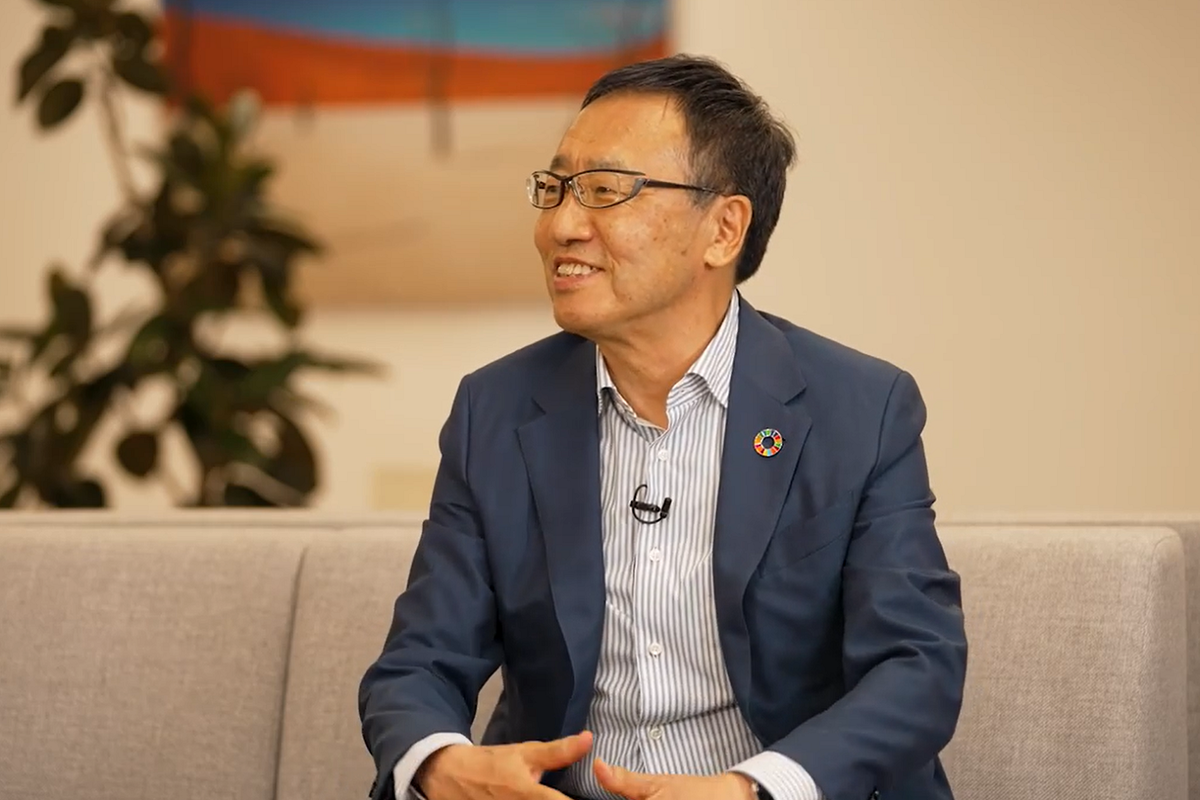
Okuno: SoftBank Corp.’s profitability and corporate value is top class, not only in Japan but worldwide relative to its industry peers. But I believe you saw many twists and turns to arrive at this point. How would you sum up journey taken so far?
Miyauchi: SoftBank's business has always expanded and evolved, but our philosophy of promoting the Information Revolution to make people happy, which was formulated by our founder Masayoshi Son, has never changed. I will soon reach my 39th year in the company, but time has flown by working under the excitement that surrounds this philosophy.
The reason I say that is because the Information Revolution has advanced at an incredible pace every year. I feel as if I’ve experienced three or four paradigm shifts.
We started out in software distribution, and while working as an aggregator, we experienced the PC era early on. We were there at the time when PCs were used as standalone equipment, to the days when they were networked, and then used for Internet web browsing. Next, there was a shift to the mobile Internet, and eventually we transitioned to the smartphone era.
I can still remember the date clearly, July 11, 2008, when we sold the iPhone exclusively in Japan for the first time. My long tenure at SoftBank has allowed me to experience many paradigm shifts like this one.
However, it’s actually difficult to say whether the strongest companies in a particular paradigm will survive intact for the next one. The reason is that there are signs that new, innovative technologies are emerging in areas where companies have so far been very successful, and what was once successful often gets disrupted. It’s hard to spot those emerging areas on the horizon.
We were always looking to the US to "bet on the winning horse" in the past. We were aware that we had to be the first to bring successful American businesses to Japan. Then, as Internet usage gained momentum, we focused on building our own networks. We launched the Yahoo! BB broadband service and acquired the carrier Japan Telecom to enter the world of fixed-line telecommunications.
Having experienced many things, I can say that the evolution of technology and the evolution of business models go hand in hand. The reason why the GAFA companies are strong now is because of the link between smartphones and 4G networks. If smartphones did not exist and the world just made up of PCs now, SoftBank might not have survived.
Even if you have a very large and strong business now, the next business that comes along may later have a big impact on the world. If that happens, existing businesses could find themselves in danger. I think SoftBank has done a good job of recognizing this pattern.
So, as a result of seeing so many different worlds as an aggregator your establishment, what you just described is now part of your company’s DNA.
That's right. Although we call ourselves a "telecommunications carrier," we are an IT company at the core. I believe that a business can be successful if it doesn’t just look at one business, but rather looks at a variety of businesses, both domestic and global, and stays a half step ahead of the competition.
The "Information Revolution" leads the way
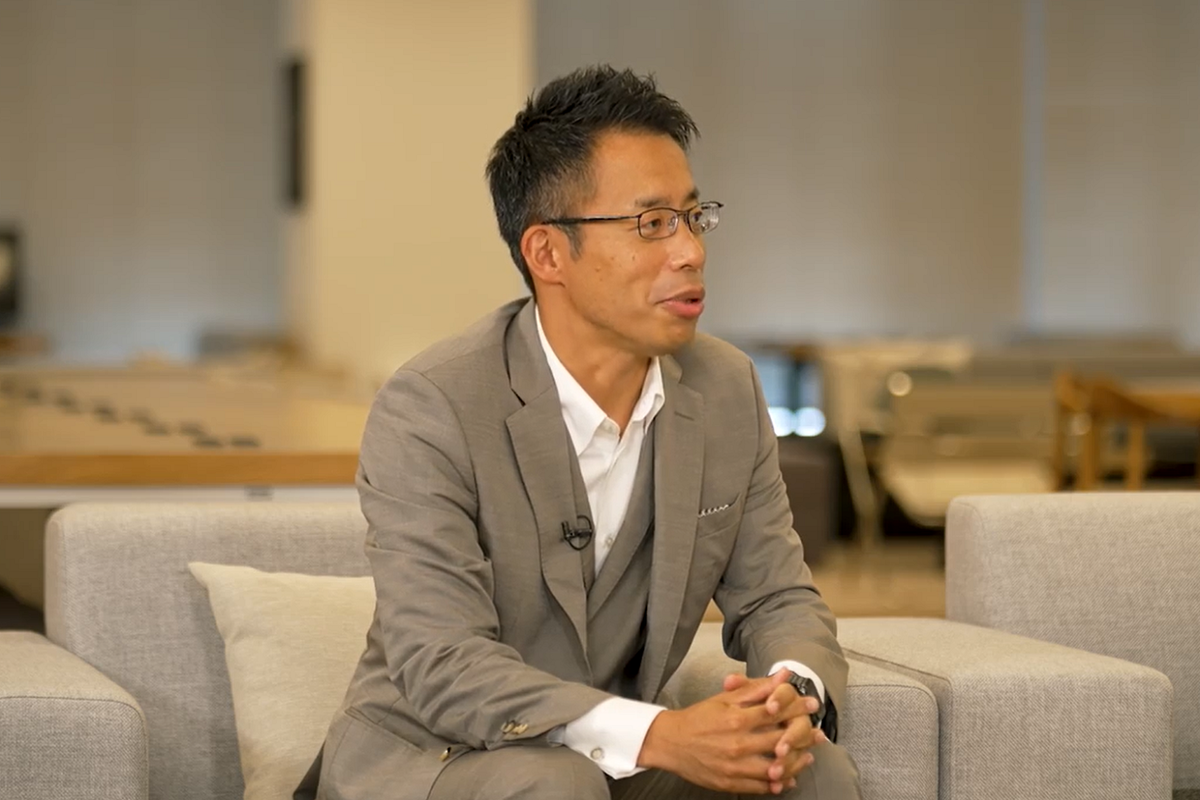
With the increasing popularity of smartphones, we now live in a world where just about everyone has at least one smartphone. I understand your company is trying to find the next paradigm shift after consumer mobile communications, which is your core business. I think this will inevitably make it difficult to find a balance with your core business, but how do you manage this transition?
First, we have to be careful when we use the term "core business." This is because I believe that if we concentrate only on our core business, we won’t be able to bring about disruptive innovation. SoftBank's objective is to promote the “Information Revolution.” We should combine this perspective with the evolution of technology and consider the best path forward.
There have been requests from the government to lower mobile phone service charges, new policies regarding MVNOs and other challenges. For SoftBank to grow sustainably, the telecommunications business is very important, but it is gradually becoming commoditized.
When I became CEO in 2015, I said, "The era of 100 million smartphones in Japan is coming," to which many people responded, "So SoftBank won’t sell feature phones anymore?" But in fact, we’re now in the era of smartphones, aren't we? There might be a completely new type of smartphone coming soon.
Given that kind of growth, is it enough to just focus on telecommunications all the time? Telecommunications is just one of our businesses. In 2015, we launched our "Beyond Carrier" growth strategy because we thought we should expand our business beyond telecommunications.
We worked very hard to make Yahoo Japan a consolidated subsidiary and bring LINE into the fold. I hope that Z Holdings will continue to grow and expand overseas. In Japan, the top companies in terms of apps are LINE, PayPay and Yahoo Japan. So I believe that we’re virtually as strong as GAFA in the Japan market. If you look at it from a global perspective, the scale of SoftBank Corp. and its group companies is still small, but the synergy between the companies is incredible.
You view your core business as the Information Revolution, not the telecommunications business. What have you done to shift to the "Beyond Carrier" phase?
SoftBank has been reducing paper use to the bare minimum for some time now. When you try to conduct business using paper, you need someone to make copies, someone to make corrections, and so on, and this creates a lot of extra work. And if paper documents are at the office, you have to come into the office to do the work. If all of this were converted to digital data and stored in the cloud, productivity can be doubled instantly.
Our company distributes smartphones to all of its employees. All data is stored in the cloud, so documents can be revised right up to the last minute before a meeting. I believe that the reason we’ve been able to maintain sales growth, especially after COVID-19, is because we went paperless at an early stage, transitioned to the cloud, and distributed smartphones to all employees.
Your company was one of the pioneers with remote work, too.
Yes, I agree. There are very few workplaces in large Japanese companies where everyone—from executives to regular employees—is in such an environment. When COVID-19 first broke out, the number of infections was reported by the authorities by fax, and the results were then tallied. There are still many inefficiencies like this in Japan.
We’re constantly creating growth strategies and implementing structural reforms. A growth strategy is about scaling and evolving. We add something to our capabilities and make it even bigger. Then, when disruptive innovations emerge, we incorporate them and create new business models.
Structural reform is not difficult to discuss. If you think about how to cut costs in half, how to cut work process times in half, and so on, you’ll come up with structural reform ideas. This is true not only for offices, but also for mobile base station construction. If you improve work efficiencies, you can do more creative work with the time left over. This is what I call "Smart & Fun!”
In our "Digital Worker 4000 Project," we held a lot of presentations using Robotic Process Automation (RPA), and we saw how much time we were able to save by using this system. In the end, we were able to achieve our goal by launching the creation of digital workers. I was very happy about the results.
SoftBank spots disruptive innovations quickly
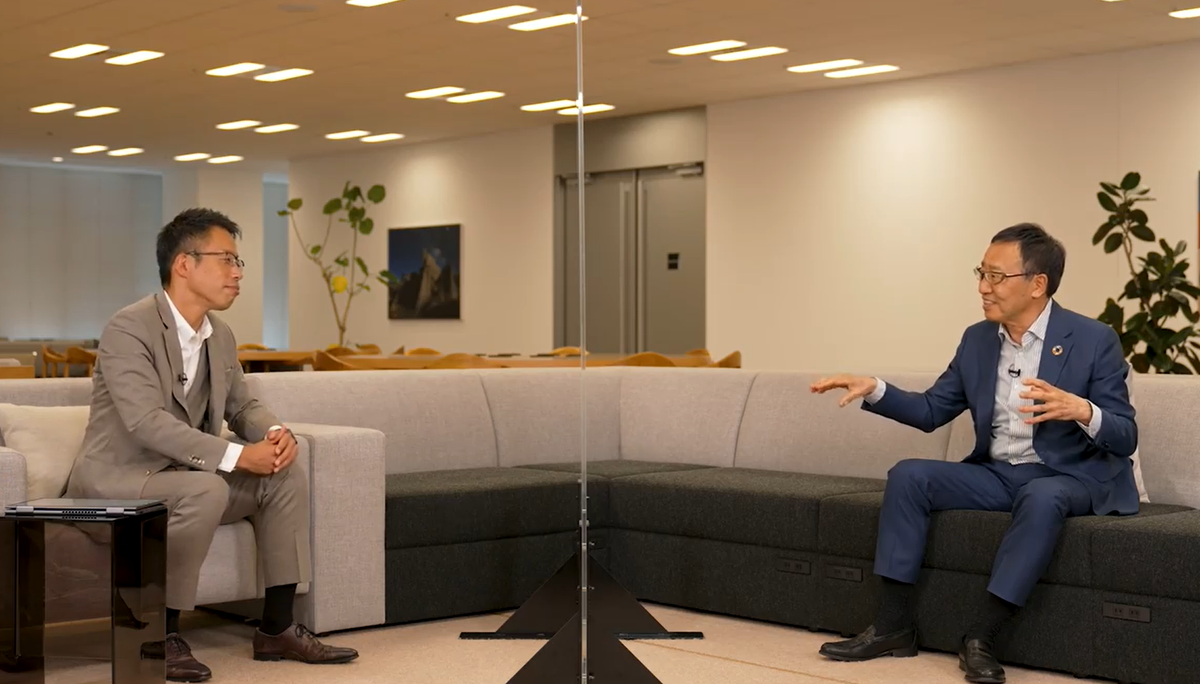
SoftBank is undoubtedly successful by many definitions, but have you ever struggled with the so-called “big company disease” and what have you done to deter it?
It's a difficult problem, isn't it? I’m currently the “Chief Connection Officer” for a project called the "Horizontal Threads Project" to develop more horizontal connections between organizations in our corporate group. I am conscious of vertical and horizontal connections, and the need to balance them.
The culture at LINE is slightly different from the culture at Yahoo Japan. Even within SoftBank Corp., different divisions have different cultures. In such a situation, let's say a synergy project is developed and, for example, LINE and SoftBank's Enterprise business come together to create a digital marketing service. The culture that emerges from this project will be a little different. This is very interesting.
From Web 1.0 to 2.0 and now 3.0, another major paradigm shift is about to happen, isn't it? It’s possible something will change overnight. I feel that Web 3.0 will be linked to this current generation, as the current "Generation G" has been using smartphones since birth. And I think something explosive will happen again.
And one more thing, I’m not that familiar with it yet, but I think that quantum computers will be a big deal when huge volumes of computation become possible, and everyone can access these capabilities. I think we at SoftBank are the ones who will spot something explosive like that.
ESG is a very hot topic on the management agenda today. Do you have your own way of thinking about ESG and how do you approach it?
We have proposed six materialities, or priority issues, and I believe that our work in promoting DX is what brings us closer to ESG and contributing to the SDGs. We’re using the power of digital technologies to reduce paper wastage and increase productivity. If this becomes more widespread, I think it will contribute to society. That’s always the idea: digitize everything. I think we’ll see a future where currently non-digital things will be digitized.
It‘s said that there are 6 million tons of food loss now. This is very wasteful, isn't it? I believe that this is another are that can be improved with technology.
Even Moderna’s COVID-19 vaccine is completely digital. They made a sample two days after COVID-19 was discovered in China. They didn't use any local storage on their PCs at the time; they did everything in the cloud. They shared it with all the researchers. That's why development was fast. This is also connected to ESG, isn't it?
There are other examples, but in this way, I think our business efforts themselves are contributing to society.
Over your career, it seems that you’ve always been fully committed to SoftBank’s philosophy, “Information Revolution — Happiness for everyone.” How do you maintain your passion and energy?
Technological evolution is truly interesting. The other day, I was having a meeting with a SoftBank Vision Fund portfolio company, and I got a lot of ideas and energy from them.
As I mentioned with the previous examples, IT can be applied to all industries, not just telecommunications. So many things can be seen as opportunities. This is the interesting part. That’s why, when I have time, I look at the websites of various companies.
It's enlightening for me to constantly look at the technology side of unicorn company businesses, and their business models. That's why it's always interesting. That's why I continue to be passionate about the Information Revolution.
(Posted on October 13, 2022)
by SoftBank News Editors


